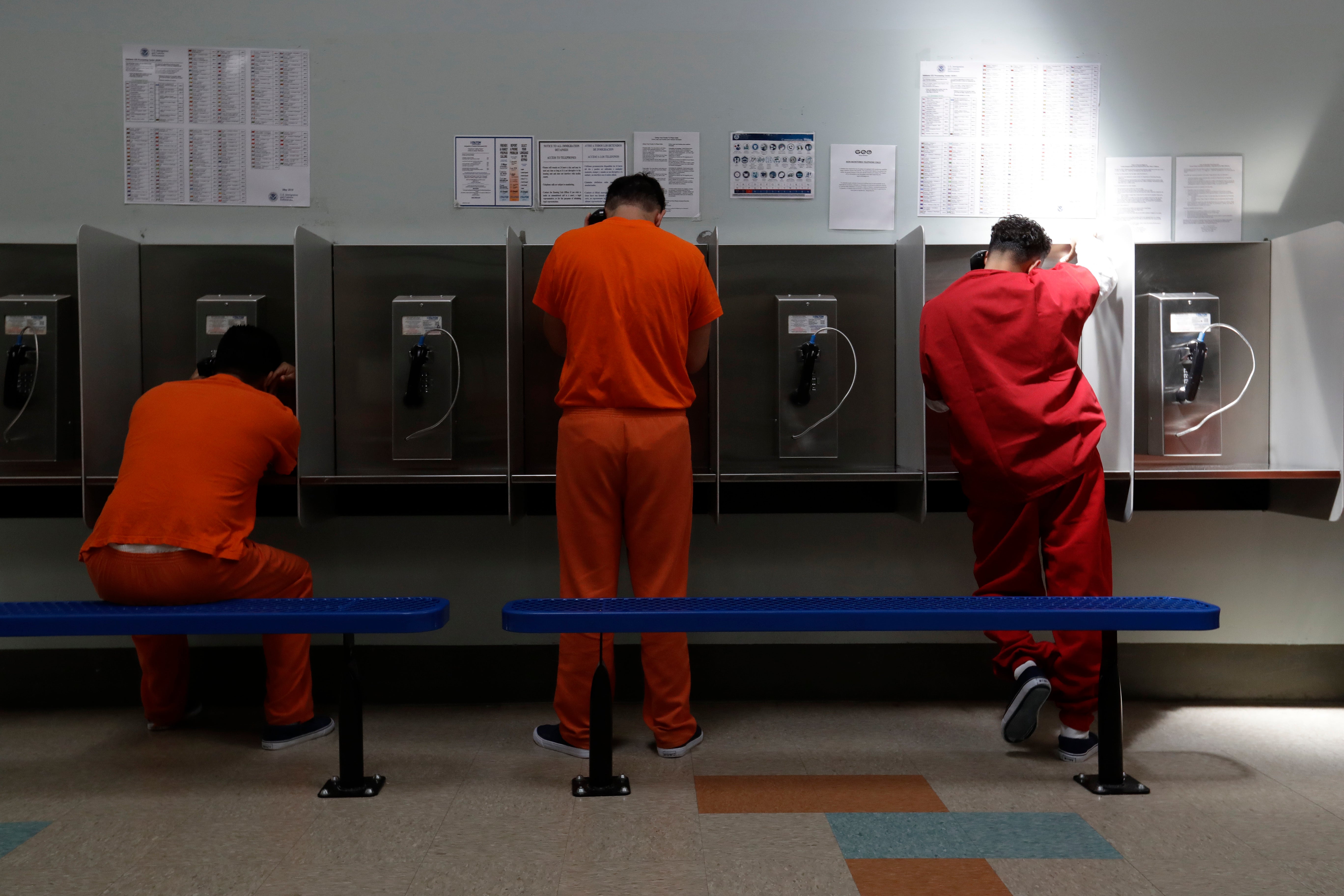How Biden broke his promise to stop using private prisons for migrants, as detention levels soar
President campaigned on ending private immigrant detention, but has increased use of it compared to Trump
Your support helps us to tell the story
From reproductive rights to climate change to Big Tech, The Independent is on the ground when the story is developing. Whether it's investigating the financials of Elon Musk's pro-Trump PAC or producing our latest documentary, 'The A Word', which shines a light on the American women fighting for reproductive rights, we know how important it is to parse out the facts from the messaging.
At such a critical moment in US history, we need reporters on the ground. Your donation allows us to keep sending journalists to speak to both sides of the story.
The Independent is trusted by Americans across the entire political spectrum. And unlike many other quality news outlets, we choose not to lock Americans out of our reporting and analysis with paywalls. We believe quality journalism should be available to everyone, paid for by those who can afford it.
Your support makes all the difference.When he was running for president, Joe Biden promised to push for an end to detaining migrants in abuse-prone private prisons, declaring, “No business should profit from the suffering of desperate people fleeing violence.”
Two-and-a-half years into his administration, those businesses are seeing a boom in profits, as the Biden administration has increased the share of immigrants held in prisons managed by private companies instead of the federal government.
According to government data analysed by the American Civil Liberties Union, at the end of the Trump administration, 81 per cent of people in immigrant detention each day were in private facilities. That share has risen to more than 90 per cent under Biden.

Private companies like GEO Group and CoreCivic continue to make large fractions of their multi-million dollar revenues from federal immigration detenion contracts.
As a historic number of migrants cross the US-Mexico border, the overall number of people in immigrant detention has doubled since January 2021, according to the ACLU.
The spike comes even as the federal government has scrutinised its use of private prisons for immigration and general detention purposes.
In 2021, a group of senior immigration officials began reviewing a group of private facilities, recommending that some be closed in their entirety. An official involved in the effort told Reuters that the Biden administration seemed to do the “barest minimum” to reduce reliance on the problem facilities identified.
The government continues to rely on private facilities like CoreCivic’s Torrance County Detention Facility in Estancia, New Mexico, despite a 2022 DHS inspector general report calling for all detainees to be moved out of the facility, which allegedly suffered from “critical staffing shortages,” safety risks and unsanitary living conditions,” including faulty plumbing and mold.
In 2021, a Biden administration executive order directed the DoJ to phase out the use of contracts with private prisons for criminal justices purposes overall.
“Private prisons profiteer off federal prisoners and are proven to be, or found to be by the Department of Justice inspector general, less safe for correctional officers and prisoners,” the White House said at the time.
“President Biden is committed to reducing mass incarceration, while making our communities safer and that starts with ending the federal government’s reliance on private prisons.”
However, the president made an exception for immigration facilities.
In some cases, the private prison companies whose federal contracts were ending simply switched to running immigration facilities instead of regular prisons, Reuters found.
Mr Biden "continues to support moving away from the use of private detention facilities in the immigration detention system” a White House spokesperson told the wire service on Monday.
As The Independent has reported, private immigration facilities have faced persistent allegaitons of poor conditions, including sexual violence against inmates and inadequate access to medical care.
During the height of the pandemic, ICE detainees were 13 times more likely to catch Covid than the general population.



Join our commenting forum
Join thought-provoking conversations, follow other Independent readers and see their replies
0Comments